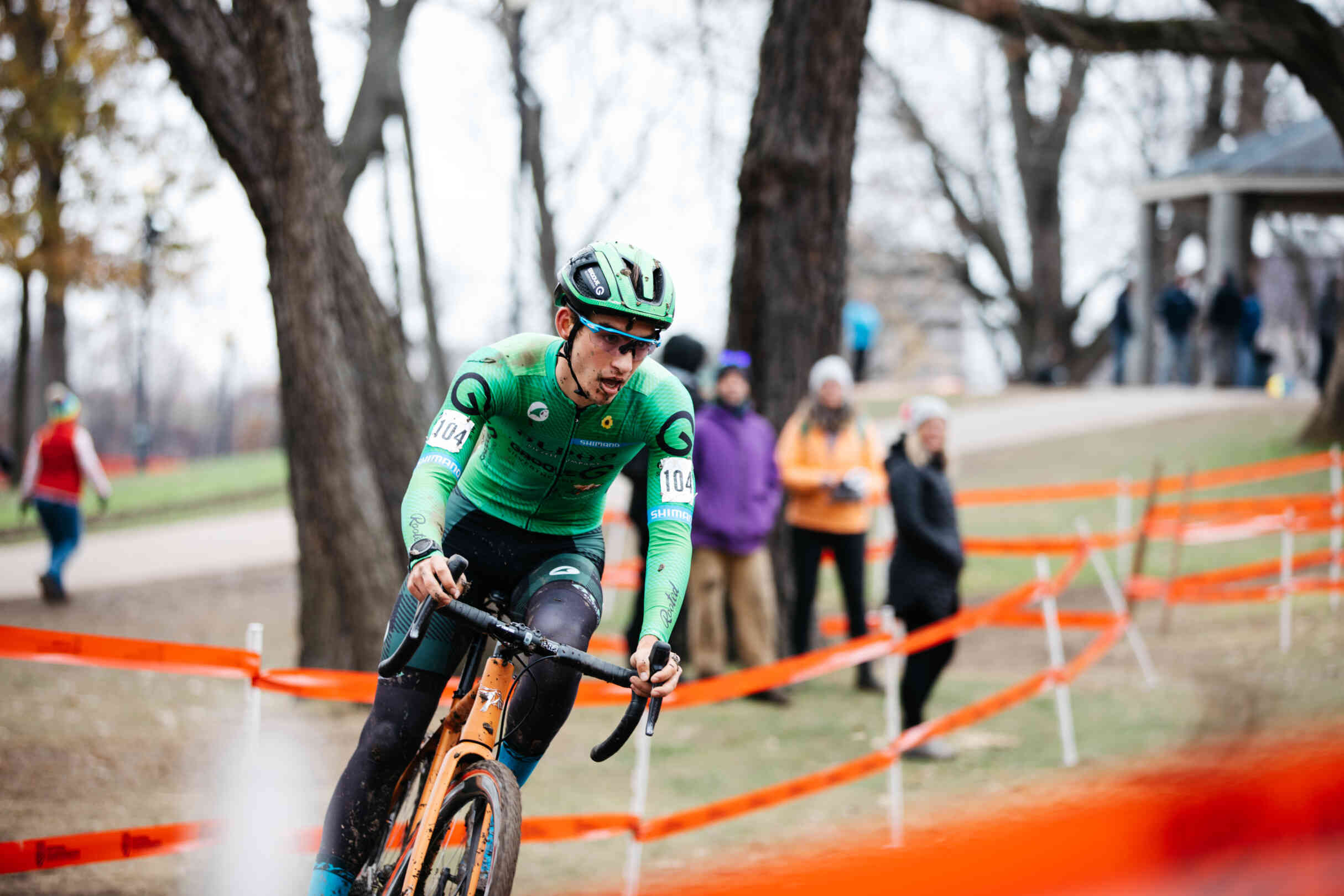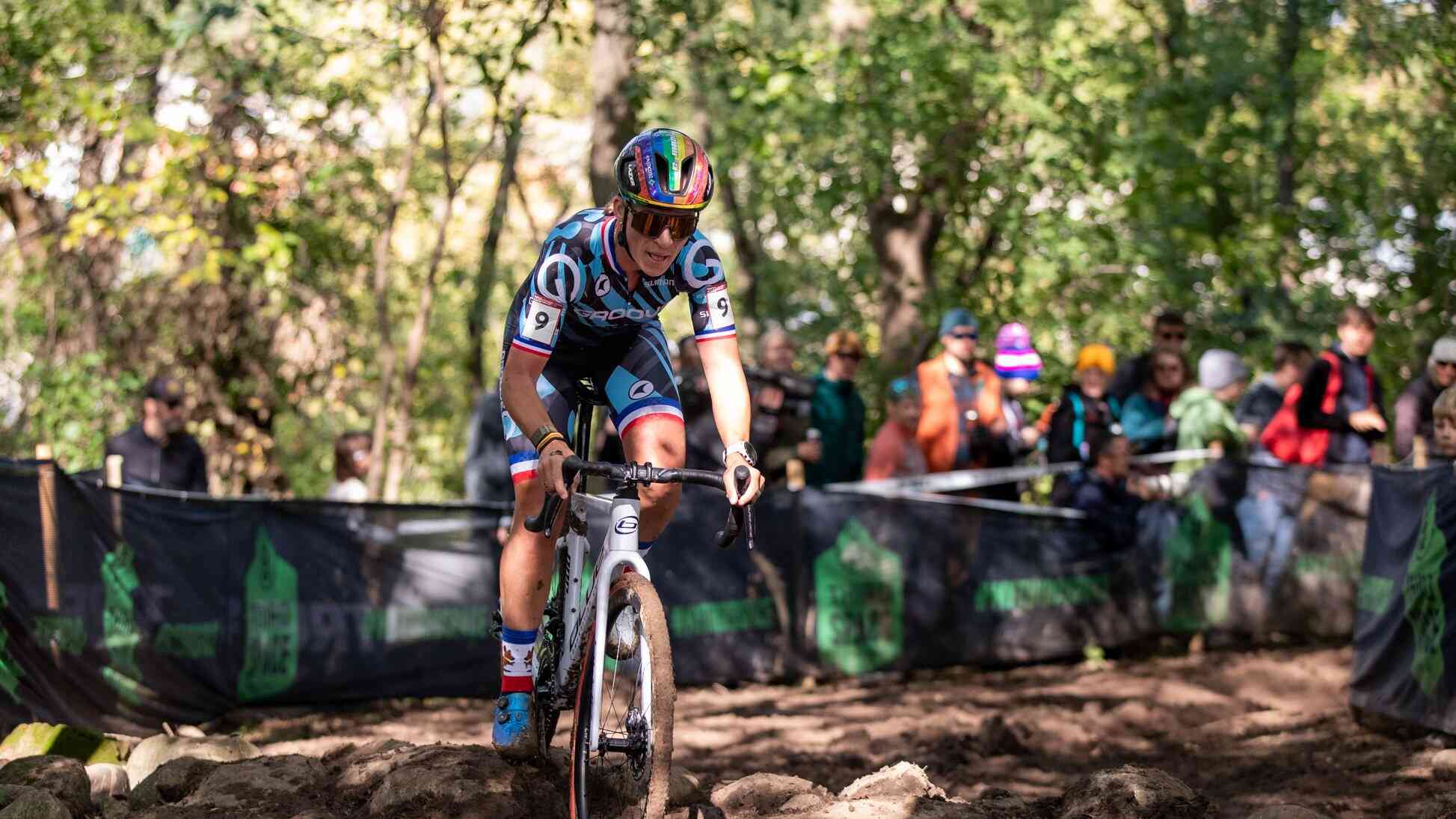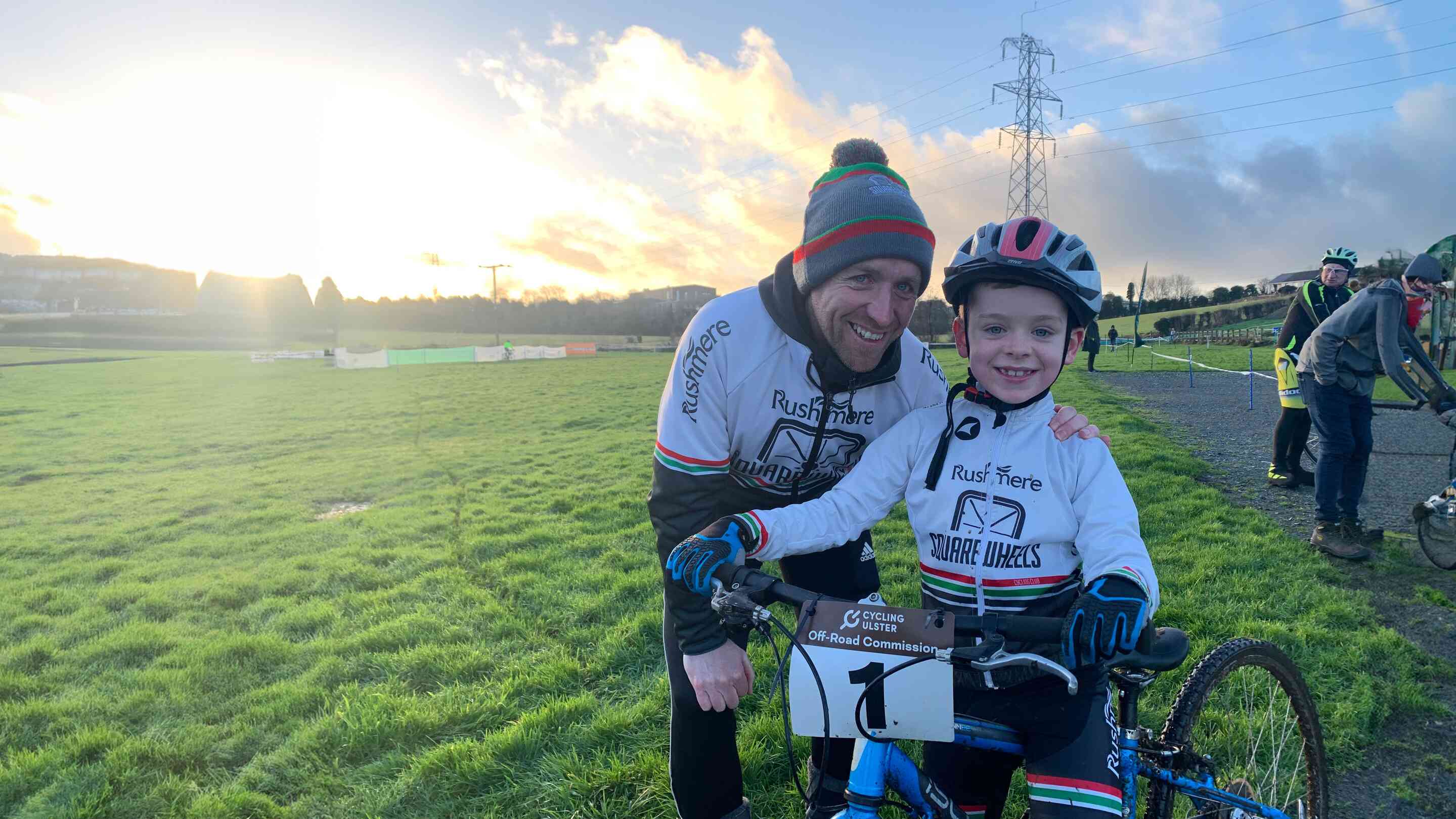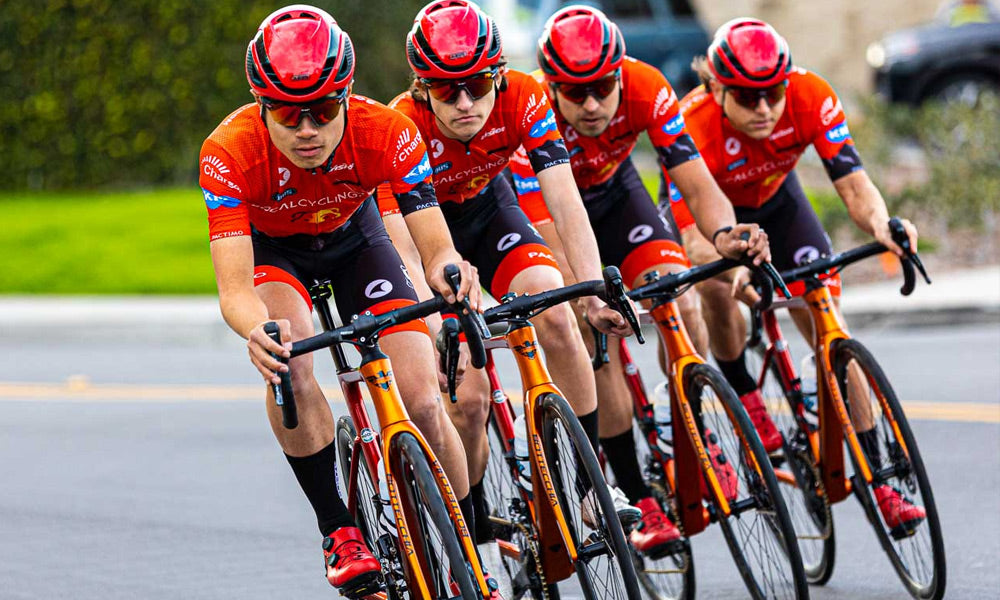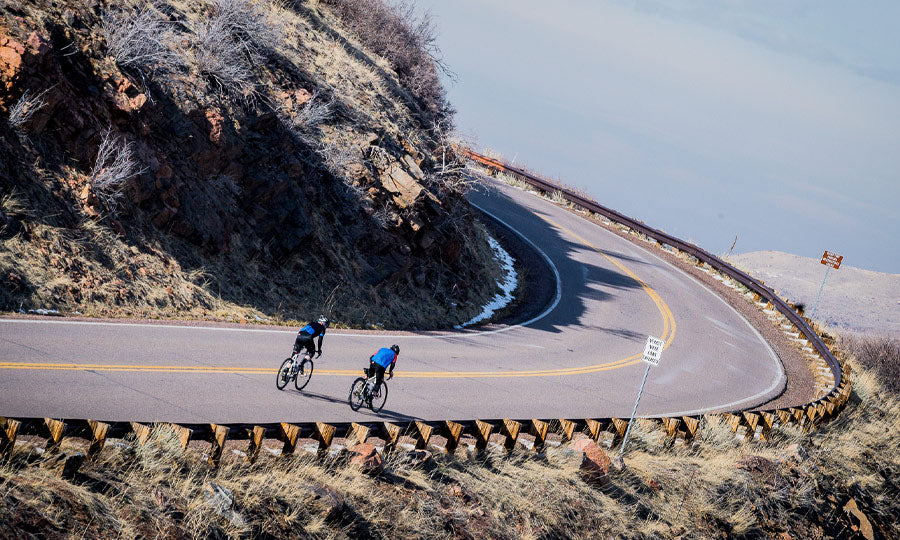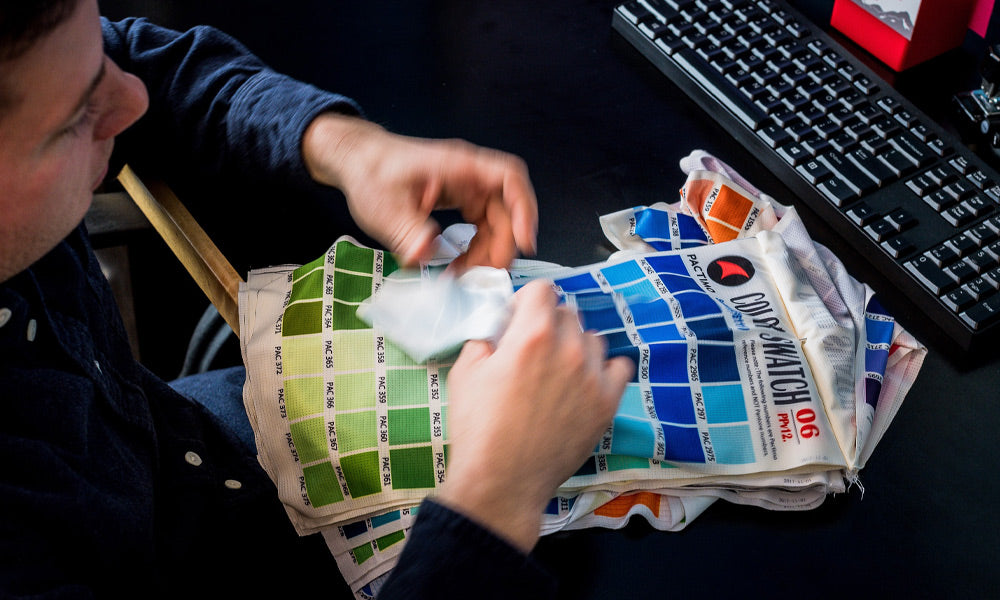14 Things With CFO Meagan Hazzout
Discover what goes on behind the scenes of a professional bike racing team - and find out why, actually, it's not all about the results.
In this edition of 'Things With' we sit down with CFO Meagan Hazzout, a former Little 5 rider, and financial whizz, who switched from the corporate hustle and bustle of one of the world's largest firms to help Rally Cycling grow into what they are today.
I haven't always worked in the bike business. I worked for KPMG for five years after I interned there in college. I started as a 23-year-old in a fishbowl room with 23 other people all dressed in business casual clothes on the 88th floor of an office building. I worked there in Chicago for four years, then I moved to Los Angeles working at KPMG in LA for a year. I made the leap to join the team in October 2018.
I raced bikes in college and joined a Little 5 team. I grew up biking, my mom and dad loved it and we had mandatory bike rides. I did a bunch of triathlons growing up, and I was a cross country ski racer. I was always into endurance sports. I went to Indiana University where the Little 5 is. I started riding six days a week and that was a lot of fun for me. I never did actually race in the Little 5 because I joined the best team, and then I didn't qualify as it's a four-person race and I was the 'fifth-man'.

I interviewed at Netflix but chose the team in the end. I was looking for different things to do and I wanted more control over my life. Being a consultant for KPMG means a lot of travel and no say in where you go. When they were like, 'tomorrow you'll go to Denver', I had to go.
It was a culture shock transforming to a bike team. It's very different. The pace is different, I work from home now. I live in Los Angeles and I work completely remotely, even before COVID-19. I used to work exclusively with people who grew up professionally in a corporate environment, so we used to have six hours of conference calls a day and that was just the way of the world. Now I'm here and we have one hour a week on conference calls.
I don't just want to be a person behind an email address. It's important to me to have relationships with the riders and the performance staff and everyone so that we can work together to use the budget we have to win the most bike races. I want it to be very much a team effort, and I think we've come a long way in that. I don't just want to be the person you hear from when you didn't fill out your expense report.

Meagan with her 8-month-old son Ariel and husband Adam.
The team needed me to help it grow. I had been around the business, even when I was at KPMG I would help the team with budgets or spreadsheets or other things like that. But a big factor for Charles Aaron [Rally Cycling's big boss] was wanting to grow the team. They were starting to race more in Europe and didn't have many systems in place to facilitate growth.
As the holder of the money, I decide where we are going to spend it. It's not a direct correlation that winning a bike race leads to more sponsorship, or makes our existing sponsors happier. It's not necessarily the case that spending more money on the performance side of the business is going to drive value to the business. Obviously, we do need to win some bike races, but if we spent all our money on salaries and travel our sponsors' are not going to be happy.
Most people don't see behind the scenes. We do so much with VIPs and engagement and with video creation, with writing, marketing, and all that sort of stuff which is not bike racing. It's all based on what's going to drive value to the organization and what's going to allow us to have future sponsorship next year.
Working for a small business means you kinda do everything on every level. In the hierarchical structure at larger companies, you have your job and you do that, and if there's something you don't know how to do you ask the person above you. In a small company, you have to learn everything and there's not necessarily anyone to ask - because a lot of things you're doing for the first time as an organization.
We're increasing our footprint in Europe. We opened a subsidiary in Belgium and while I have a very strong finance and accounting background, the laws in Belgium are so totally different. Trying to figure out how to be an American company in Europe is challenging and with COVID-19 that's more extreme with the travel restrictions but we need to run smoothly in Europe, just like the other teams or its going to be a disadvantage to us.
On paper, a lot of what I do has nothing to do with bike racing. For example, foreign exchange. If you're an American company that has to pay a €40 speeding ticket in France, that can cost you $35 just for the wire transfer! There were cases where we were spending more on the wire than on the thing we needed to buy or pay for. As a CFO of a bike team, you need to learn how to get around things like that.
It's a good fit for me to work for a bike team. I've always been close to the sport. It's not a surprise for any of my friends that I know work for a bike team. I've always been around it, I've always loved biking. So when I was thinking about making the switch to a smaller company to go work for a bike team is a really good fit for me. I like being active, I always have been, it's a huge part of my life.

Meagan competing in a triathlon at 13-years-old.
I love getting to go to the races. It's one of the biggest perks of my job. I would love to go to Europe and go to more of them. I don't have to for my role but whenever I have the opportunity I grab it. I always go to camp and I love going to places where I can meet and be with the riders because it's like we're all one team.
To be a good CFO you need to have attention to detail. I think you have to be able to take a broad look at the business as a whole, to step back and not be too emotionally tied to one specific part of the business. Be as objective as possible, because everyone wants more money for their own part of the business, but in my job, I have to be able to take an objective step back and hear everyone's voice and try to decide what's going to help drive the business so that we can be successful for the next couple of seasons not just tomorrow.
READ THE ORIGINAL STORY ON RALLY CYCLING NEWS

